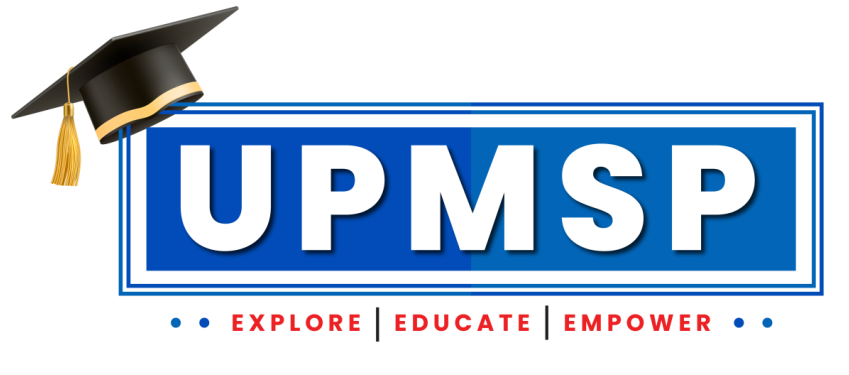UP Board Exam Notes are very essential for students preparing for UP Board Exams benefit significantly from notes and flashcards as indispensable study tools. Notes serve as condensed summaries of essential information, aiding comprehension and retention. They provide a structured overview of key concepts, facilitating efficient revision and reinforcement of learning. On the other hand, flashcards offer a dynamic method for active recall and self-testing, promoting deeper understanding and memory consolidation. By integrating both notes and flashcards into their study routine, students can effectively organize their study materials, identify areas for improvement, and optimize their exam preparation efforts for success in the UP Board Exams.
What are flashcards for UP Board Students?
Flashcards are essential tools for studying for your UP Board Exam Notes. These compact, two-sided cards are perfect for mastering details, keywords, and vocabulary crucial for success. Utilizing flashcards allows you to reinforce the connections between different pieces of information. Here’s how you can make the most out of flashcards for your exam preparation:
- Content Recap: Summarize important concepts, formulas, dates, or events on one side of the flashcard.
- Question and Answer: Write a question related to the content on one side of the flashcard and the answer on the other side.
- Active Recall: Test yourself by covering one side of the flashcard and trying to recall the information based on the prompt or question.
- Self-Assessment: Keep track of your progress by sorting flashcards into “mastered” and “needs improvement” piles as you review them.
- Repetition and Review: Regularly review flashcards to reinforce memory retention and deepen understanding.
By incorporating flashcards into your study routine, you can effectively consolidate your knowledge, improve recall, and enhance your performance on the UP Board Exam Notes.
How to Prepare UP Board Exam Notes
Creating effective Up Board Exam Notes is essential for comprehensive study and revision. Here’s how you can craft structured and organized notes using the keyword “UP Board Exam Notes”:
- Understand the Syllabus: Begin by familiarizing yourself with the exam syllabus provided by the UP Board. This will help you identify key topics and subtopics to focus on in your notes.
- Purposeful Organization: Divide your notes into sections corresponding to the different subjects or topics covered in the exam syllabus. Use headings and subheadings to create a clear structure.
- Precise and Relevant Information: When taking notes, focus on capturing essential information relevant to the UP Board Exam. Avoid including unnecessary details that may confuse or overwhelm you during revision.
- Board Exam Keywords: Incorporate important keywords and terms relevant to the UP Board Exam within your notes. Highlight these keywords to make them stand out and aid in quick review.
- Condensed Format: Keep your notes concise and to the point. Use bullet points, diagrams, charts, and mnemonics to condense complex information into easily digestible formats.
- Regular Updates and Revisions: Continuously update your notes with new information and insights gained during your study sessions. Schedule regular revision sessions to review and reinforce your understanding of the material.
- Active Engagement: Engage actively with your notes by summarizing key points in your own words, creating flashcards, or practicing past exam questions based on the content covered in your notes.

By following these strategies for your Up Board Exam Notes, you can create comprehensive and effective study materials to prepare for your upcoming exam.
Create Flashcards for UP Board Exam Notes
I’ve observed that some individuals misuse flashcards, especially in the context of preparing for the UP Board Exam. It’s crucial to understand that flashcards should serve as tools to actively test your knowledge rather than merely condensing your notes further. Unfortunately, I’ve witnessed instances where people compile bullet points on flashcards, intending to review them passively. However, passive activities like rereading notes are not efficient uses of revision time.
Instead, for effective Up Board Exam Tricks, utilize flashcards as a dynamic method to assess your understanding swiftly:
- Question and Answer Format: Create flashcards with a question or key term on the front side.
- Answer or Definition: On the back side, provide the answer to the question or define the key term.
- Active Recall: Challenge yourself to recall the answer or definition based on the question before flipping the card to verify.

This approach encourages active engagement and strengthens your memory recall skills, which are invaluable for exam success.
While summarizing notes holds value, especially in the context of the UP Board Exam Tricks, where understanding and synthesis of information are crucial, the process of creating concise summaries in your own words facilitates deeper comprehension and connection-building in your brain. However, the benefits diminish if you rely solely on rereading these notes passively.
Therefore, for your UP Board Exam preparation, ensure that you leverage flashcards as active learning tools to test your knowledge efficiently. Combine this with the practice of summarizing your notes to enhance understanding and retention. Remember, the key is active engagement and continuous practice to solidify your grasp of the exam material.
Up Board Exam Tricks
Master the Syllabus:
- UP Board Exam Tricks: Dive deep into the official syllabus to map out all essential topics and sub-topics for each subject. This creates a roadmap for focused studying.
- UP Board Exam Tricks: Don’t rely solely on textbooks. Supplement your understanding with diverse resources like online lectures, video tutorials, and educational documentaries.
Craft Effective Notes:
- UP Board Exam Tricks: Abandon rote memorization! Create concise and organized notes summarizing key concepts, formulas, and definitions. Visualize information with diagrams, mind maps, or flowcharts for easier recall.
- UP Board Exam Tricks: Actively engage with your notes. Rewrite information in your own words, explain concepts to a study partner, or test yourself with flashcards made from your notes.
Practice Makes Perfect:
- UP Board Exam Tricks: Solve past years’ question papers and model tests under timed conditions. This hones your problem-solving skills, familiarizes you with the exam format, and builds time management expertise.
- UP Board Exam Tricks: Seek out additional practice questions from reliable sources like UP Board publications or online question banks. The more you practice, the more confident you’ll be on exam day.
Conclusion
By creating comprehensive and well-organized UP Board Exam notes, students can consolidate their understanding of key concepts, enhance retention, and streamline their revision process. Remember, UP Board Exam notes serve as invaluable resources, guiding students through the vast syllabus and helping them focus on essential topics. Whether handwritten or digital, these notes should reflect the individual’s learning style and preferences, incorporating mnemonic devices, diagrams, and summaries where necessary. Embracing active learning strategies, such as flashcards and regular revision sessions, alongside the utilization of UP Board Exam notes, can significantly boost exam performance. So, as you embark on your exam preparation journey, prioritize the creation and utilization of effective UP Board Exam notes as indispensable tools for academic success.

FAQ’s
Q1. When is up board exam in 2024?
Ans- The Uttar Pradesh Madhyamik Shiksha Parishad (UPMSP) is all set to commence the UP Board high school and intermediate exams from, February 22, 2024.
Q2. Can I take the board exam in English?
Ans- State boards typically offer question papers in both the state language and English for the convenience of students. If you prefer to answer the question paper in English, you can typically do so, provided the board allows it.
Q3. How to recheck board exam paper.
Ans- To apply for the CBSE class 12 paper rechecking process, follow these step-by-step instructions: Step 1: Visit the CBSE official website at www.cbse.gov.in and proceed to the Main Website. Step 2: Look for the “Apply for Verification of Marks” link in the “Latest Updates” section on the homepage.
Q4. UP board exam rules.
Ans- Only stationery items specified by the exam center are permitted inside the examination hall. – Electronic devices such as mobile phones, electronic watches, and earphones are strictly prohibited. – Overwriting and cutting on the answer sheet should be avoided.




